Can China really catch up with the US?
China has great motivation to achieve its China Dream of catching up with and surpassing the US. Not only would this wipe away its century of humiliation but also prove the superiority of socialism. However, its actions could make achieving its dream that much harder.

Catching up with and surpassing the US has been China's dream for a century. The late Chairman Mao Zedong launched the Great Leap Forward to surpass Britain and catch up with America (超英赶美). And while China-US relations grew friendlier after China's reform and opening up, China did not give up on its goal.
Amid the euphoria of "Amazing China", renowned Chinese academic Hu Angang told the media in December 2017 that China has surpassed the US in terms of economic and technological strength, as well as comprehensive national power, to rank first in the world. He said these were not exaggerations but conservative estimates based on data collected over the past decade. He confidently claimed that "the truth is in the hands of the few sometimes".
Hu's claim is certainly more palatable than the ones pinpointing China's weaknesses. In a country where glorifying "saints" is common, doing so brings material rewards and greater well-being, not to mention the strengthening of one's position as a "state guru". Hu's analysis proves at least two points: one, China does have a centennial dream of surpassing the US, and achieving this would wipe away a century of humiliation; two, achieving this goal would prove the superiority of Chinese socialism.
China uses grievances against the West as a crutch
The first point implies that so long as it has not surpassed the US, China's nationalism (patriotism) continues to be driven by its century of humiliation and its backwardness can be blamed on Western invasions. For instance, on 20 May 1970, Mao's famous statement "People Of The World, Unite And Defeat The US Aggressors And All Their Running Dogs" was read aloud at Tiananmen Square by Lin Biao. Clearly, so long as American imperialism is not defeated, any deterioration of the international environment can be blamed on the US.
Based on this logic, China cannot prove the superiority of socialism if it cannot surpass the US.
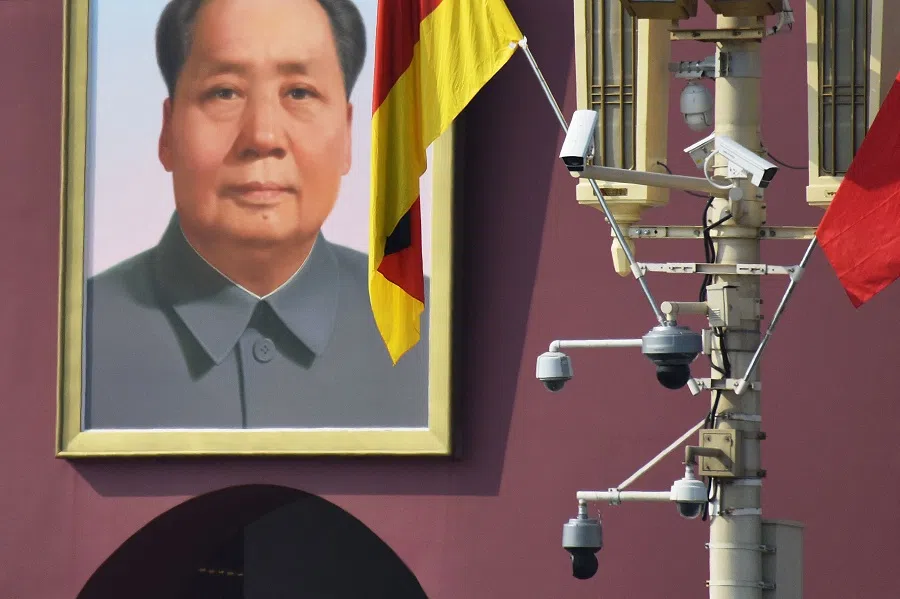
The second point can be illustrated by Mao's famous remark that China should be "read off the face of the earth" if it was still unable to overtake the US after working at it for five or six decades. In August 1956, Mao proclaimed: "You have such a big population, such a vast territory and such rich resources, and what is more, you are said to be building socialism, which is supposed to be superior; if after working at it for fifty or sixty years you are still unable to overtake the United States, what a sorry figure you will cut! You should be read off the face of the earth."
Based on this logic, China cannot prove the superiority of socialism if it cannot surpass the US. Mao's statement is consistent with the logic of socialism. When China implemented reform and opening up and outpaced US growth, it was easy to attribute success to the superiority of socialism. Conversely, if it still has not surpassed the US, it still has not proved socialism's superiority. Based on Mao's logic, therefore, if China does not overtake the US by 2049, will it be decided once and for all that socialism is not superior to capitalism?
How is it that a country capable of making atomic bombs is not able to manufacture pen tips?
Hu's claim that China has overtaken the US at least proves that China should not be "read off the face of the earth". But the China-US trade war has shown the Chinese people that US sanctions have dealt a big blow to China's high-end chip sector, and that China's advancements may no longer be that advanced. Chinese Premier Li Keqiang once shocked the country by admitting that most of China's ballpoint pen tips are imported. How is it that a country capable of making atomic bombs is not able to manufacture pen tips?
Incidentally, the Comac C919 narrow-body airliner is only a local product in name - its power unit, flight control system, fuel system, power supply system, landing gear and other key components are either made from the advanced products and technologies of foreign countries or made under joint ventures with other countries. For that matter, the high-end bearings of China's railway trains are all imported.
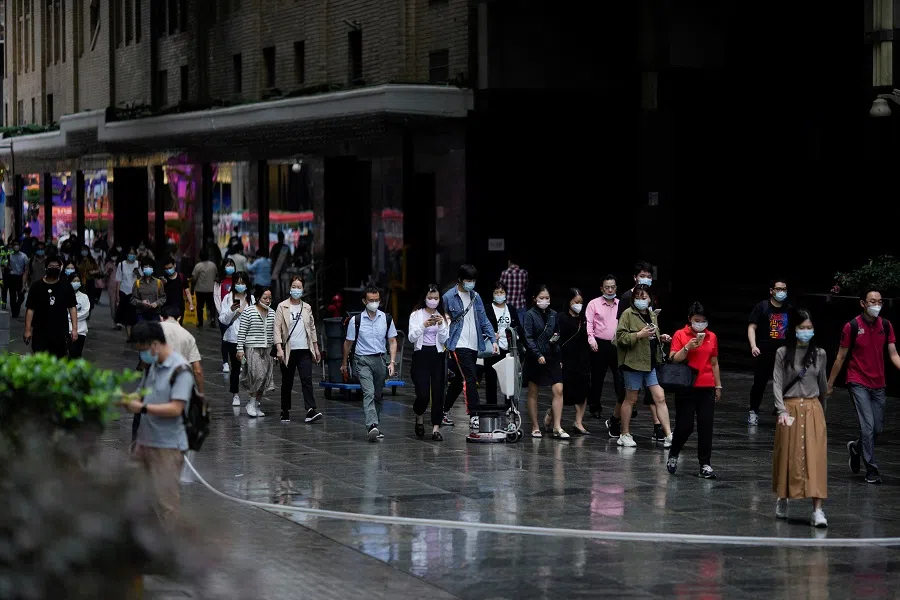
There is no need to make a list of all the sectors in which China lags behind - just the tiny chip is enough to illustrate a country's strength. If China's entire chip industrial chain overtakes Western countries' by 2049, China would have surpassed the US in terms of the economy, technology and military. Chips are an essential component at the heart of economic growth, technological advancement and military prowess in the 21st century. For China's chip sector to surpass that of the US, it has to be driven by institutional strength. Only a good system can drive billions of people to innovate and create.
History of institutional changes
The achievements of China's 40 years of reform and opening up is an inspirational history of institutional changes driving innovation and creation. This could not have happened without Deng Xiaoping engineering reform and opening up. While China has been led by the Chinese Communist Party (CCP) before and after reform and opening up, China's economic policies completely changed after reform and opening up, turning away from a planned economy that did not improve people's lives.
Overall, between 1957 and 1978, the people's material and cultural living standards stagnated, and economic growth brought about little social welfare.

Zhao Dexin, a retired professor at Zhongnan University of Economics and Law, pointed out in an article on China's economic development over the past 50 years (《中国经济50年发展的路径、阶段与基本经验》) that in terms of real consumption, the average annual consumption of major consumer goods per capita in China in 1978 compared with 1957 was as follows: apart from a slight increase in the consumption of pork and sugar, grain fell from 203.06 kg to 195.46 kg; edible vegetable oil fell from 2.42 kg to 1.60 kg; beef and lamb fell from 1.11 kg to 0.75 kg; poultry fell from 0.50 kg to 0.44 kg; and aquatic products fell from 4.34 kg to 3.42 kg. Overall, between 1957 and 1978, the people's material and cultural living standards stagnated, and economic growth brought about little social welfare.
Former PLA Lanzhou commander-in-chief Han Xianchu was swarmed by townsfolk when he went back to his hometown on 29 October 1981. After Han alighted from his vehicle, one old man of about 70 said to him: "What kind of official are you? For me to still be in this state after decades." Han's secretary Yang Xuhua said after the encounter, Han was silent all day. When he left, Han told the townsfolk: "I did not expect that more than 30 years after liberation, you are still in this state. I have let you down. The Chinese Communist Party has let you down."
Deng Xiaoping led China on the path of the market economy, which Mao Zedong never even thought of; farmers who sold their vegetables in the market would have been labelled as capitalists. Mao once said that China was a socialist country, and before liberation, was much the same as a system under capitalism. He said the country practised the eight-grade wage system, distribution according to work, and exchange through money, which were not very different from the old society. What was different was that the system of ownership has changed. He added that China currently practised a commodity system, and the wage system was unequal too, there being the eight-grade wage scale and so on.
If it continued with the market economy and improving democracy and rule of law, and reforming the political system that did not match economic growth, it would be a matter of time before China's economy and per capita income overtook the US.
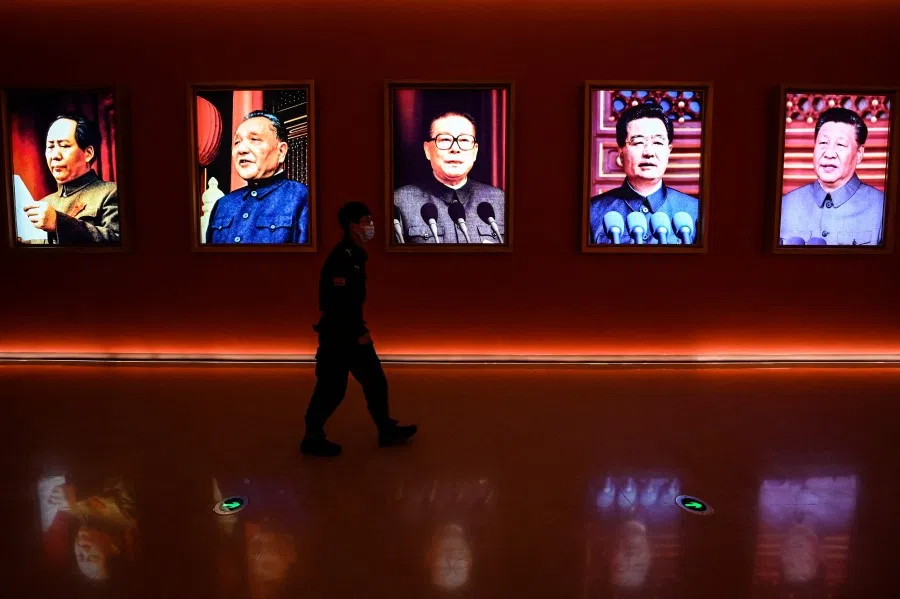
Mao linked the commodity system, distribution according to work, and exchange through money to capitalism, and so he praised the Khmer Rouge for abolishing currency and markets. On 21 June 1975, in Zhongnanhai in Beijing, Mao told Khmer Rouge leader Pol Pot: "We approve of what you do. Much of your experience is better than ours. China is not qualified to criticise you... We are now a capitalist country without capitalists, as said by Lenin. This country wants to protect the legal rights of the capitalist classes. People's wages are not equal. It perpetuates unequal systems under the guise of slogans of egalitarianism."
China embarking on the market economy narrowed the gap between China and the US. If it continued with the market economy and improving democracy and rule of law, and reforming the political system that did not match economic growth, it would be a matter of time before China's economy and per capita income overtook the US. Its 1.4 billion people would logically yield many more outstanding talents than the US, and China's raw innovation might approach the level of the US.
Businessmen voting with their feet in response to 'common prosperity'
But now, China's growth is not overtaking the US, but moving backwards - the key indicator is putting politics above economics, and abandoning the guiding principle of having the economy as the core, using pandemic measures as a political tool and moving away from maintaining the conditions for basic survival for most of its people, and clamping down on the private economy and entrepreneurs. All this is a serious deviation from putting the economy at the centre.
Since 2008, "the state advances and the private sector retreats" (guo jin min tui 国进民退) has become more pronounced and has led to private entrepreneurs being heavily "blackened" politically. In 2018, CCP journal Qiushi (《求是》) ran an article titled "Communism is to Eliminate Private Holdings", while someone called Wu Xiaoping raised the call that "the private economy should step aside after completing its important historic role". Amid a climate calling for strict conformity, some people would be sensitive to sniffing out political signals for opportunities.
In 2021, the CCP officially rolled out using the "third distribution" to achieve "common prosperity" - many of China's rich businessmen like SOHO's Pan Shiyi, as well as many nameless small and medium entrepreneurs voted with their feet in response to this common prosperity.
When reform and opening up have become politically correct "decorations" and China's ways are reminiscent of Mao's path, one can only wonder whether China can overtake the US.
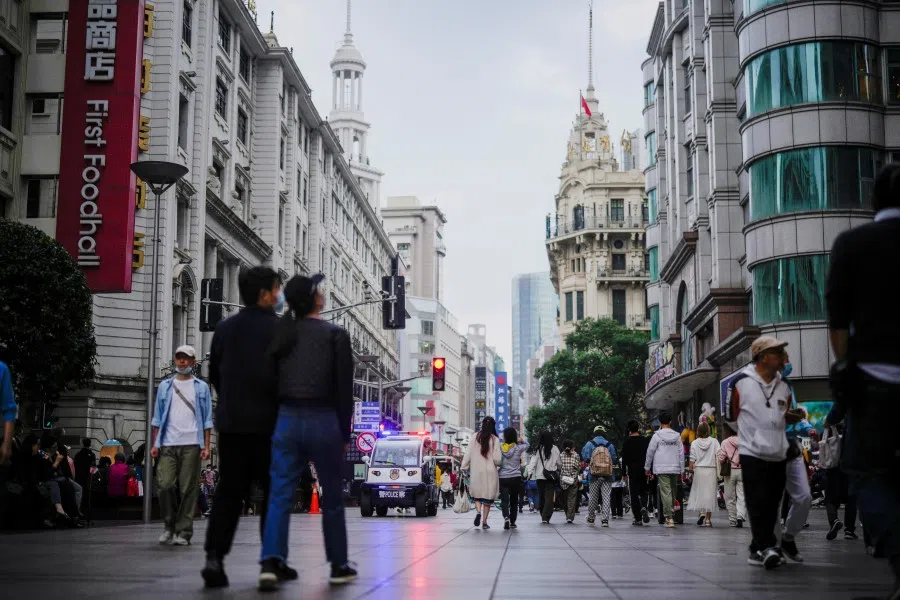
In 2019, Peterson Institute for International Economics (PIIE) senior fellow Nicholas Lardy released the book The State Strikes Back: The End of Economic Reform in China? He felt that strengthening state-owned enterprises (SOEs), and putting aside reforms while consolidating their political position through a "state fightback", has given less impetus for economic growth. American Enterprise Institute (AEI) senior fellow Derek Scissors feels that the rollback of SOE reform would have an impact on the continued growth of China's economy, as the monopoly of SOEs would hinder innovation and fair competition.
Consequences follow from policies taken. In a report in September, the World Bank once again lowered its forecast for China's economic growth for 2022 to 2.8%, while growth in developing East Asia and the Pacific outside of China is forecast at 5.3% in 2022, far higher than 2.6% in 2021. Growth for Vietnam is projected at 7.2%, the Philippines at 6.5%, Malaysia at 6.4%, and Indonesia at 5.1%.
When reform and opening up have become politically correct "decorations" and China's ways are reminiscent of Mao's path, one can only wonder whether China can overtake the US. Former US Treasury Secretary Larry Summers said the Chinese government's increasing tendency to intervene in corporate affairs, along with other challenges, have led him to substantially lower his expectations for Chinese growth. He sees parallels between forecasts of China's rise and earlier predictions that Japan or Russia would overtake the US that look ridiculous today.
The September issue of The Atlantic ran an article titled "China's Mistakes Can Be America's Gain", which said the US can leverage China's policy mistakes to strengthen the US and weaken China. A growing number of people in the US are gloating - should China not reflect? The door is gradually closing, and Western countries' unwillingness to give China any latitude is growing, but the Chinese Academy of History is citing history and defending the closed-door policy of the Ming and Qing dynasties. Those who want a strong China can only helplessly say that it is a long way before China overtakes the US.
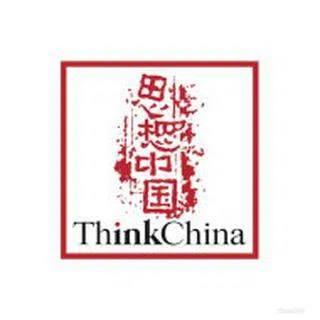

![[Big read] When the Arctic opens, what happens to Singapore?](https://cassette.sphdigital.com.sg/image/thinkchina/da65edebca34645c711c55e83e9877109b3c53847ebb1305573974651df1d13a)


![[Video] George Yeo: America’s deep pain — and why China won’t colonise](https://cassette.sphdigital.com.sg/image/thinkchina/15083e45d96c12390bdea6af2daf19fd9fcd875aa44a0f92796f34e3dad561cc)